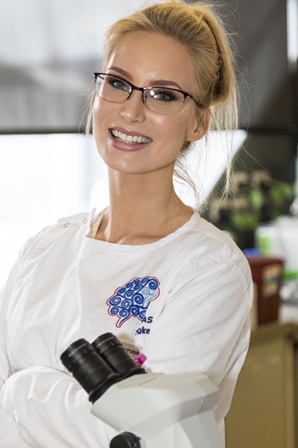The Royal Society of Tasmania invites all members and supporters to a lecture on 7 November 2021, at 3 pm by Dr Lila Landowski.

Photo courtesy of Reg Ashman
The lecture will be presented in person at the RST Lecture Room in TMAG (Hobart) and as a Zoom webinar.
If you wish to attend in person: Register using Eventbrite before Saturday 6 November using this link. The password is RST. Attendance in person is limited by current pandemic restrictions to 20.
Attendance is free for members of the Royal Society of Tasmania. Non-members are welcome to attend and donations are appreciated at the door or through our website. Suggested donation $6; $4 for students and Friends of TMAG.
If you wish to attend via ZOOM: Follow this link to register for the Zoom webinar. After registering, you will receive a confirmation email containing information about joining the webinar.
Attendance is free for members of the Royal Society of Tasmania. Non-members are welcome and donations are appreciated through our website. Suggested donation $6; $4 for students and Friends of TMAG.
Our brains change as we age, making it significantly harder to learn – but it doesn’t mean an old dog can’t learn new tricks!
There are smarter ways to learn than whatever it is you are doing right now. Lila will take you on a journey through the brain, examining some of the existing research on learning, and empower you with tools that help you learn faster and more effectively.
Dr Lila Landowski is a multi-award-winning neuroscientist and lecturer at the University of Tasmania, an Executive Director of the Australian Society for Medical Research, a Director of Epilepsy Tasmania, as well as a regular guest expert science communicator for the ABC. Her research background spans across stroke, nanotechnology, fatigue, dementia, axon guidance and peripheral nerve regeneration.
As a thought leader in science and science advocacy, her honorary titles include being a “Superstar of STEM,” an ambassador for public school education, a patron of National Science week, and being named a “Science superhero” by Australia’s Chief Scientist.
